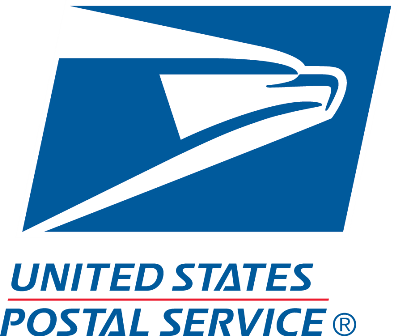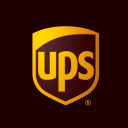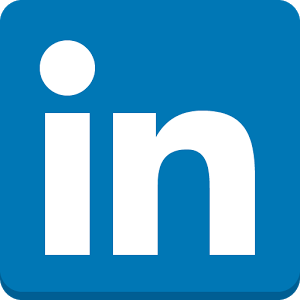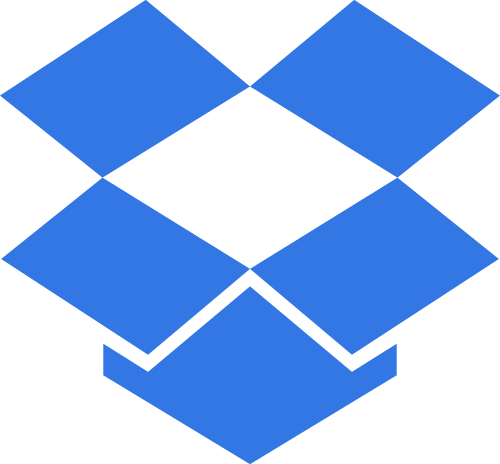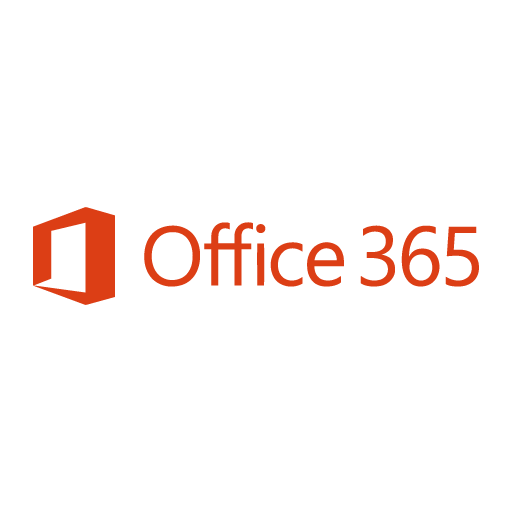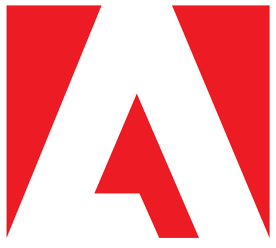How I Started A 7 Figure Business Helping People Give Presentations
Hello! Who are you and what business did you start?
Greetings, friends!
My name is Brian Burkhart, and I believe in making waves. I’m the founder and CEO of SquarePlanet Presentations & Strategy, a Phoenix, Arizona-based business communications firm that landed a spot on the 2018 Inc. 5000 list. I’m also the co-founder and co-owner of AlterEgoAV and Mutt Jackson, both based in Chicago, Illinois.
When I say I believe in making waves, what does that really mean? Well, to start, let’s clarify that these waves are not of the aquatic variety. What I mean is that at SquarePlanet, we help our clients tell their stories in the most impactful ways possible — and that takes on many forms. See, we make money in six ways:
- Meeting Creative: We develop and execute corporate meetings and events. That includes overall theme expression and supplementary design elements, engaging creative elements, presentation development and training, experiential elements, scenic elements, signage, etc. My other company, AlterEgoAV, is an audio-visual production company, so we work in tandem with the team at AEAV to execute stellar meetings.
- Brand Voice: We help organizations identify and codify their core beliefs, and then express those beliefs in a way that’s impactful so people both remember and act on them. We do this work extremely well, and it’s the most important thing we do. As a matter of fact, I wrote an entire book about the power of core beliefs in business. It’s called “Stand for Something: The Power of Building a Brand People Authentically Love,” and it’s available on Amazon.
- Presentations That Matter: We help individuals and organizations create compelling presentations that audiences both remember and act on.
- Engineered Delight: We work with organizations to think through engaging, purposeful and fun ideas to build positive emotions inside and out. Areas we typically support include sales funnel/prospect nurturing, employee engagement and external brand awareness.
- Speaker Training/Workshops: Whether it’s one-on-one training between me and a C-suite executive or a workshop with an entire sales team, we help people improve their presentation skills.
- My Keynote Addresses: As a highly sought-after speaker, I present regularly to audiences around the globe about core beliefs and the inherent power of communication.

Sure, SquarePlanet technically falls into the “small business” category — but we do big business with some of the biggest brands on the planet. Think Coca-Cola, Redbox, Google, Jim Beam, Citibank, The Northern Trust, Red Bull, United Airlines, General Motors and more. We also produce a podcast in house called “Square Stories” — it’s a bi-monthly exposé of the most fascinating people in business today.

One of the most unique things about SquarePlanet is that there just aren’t a lot of people who focus on the things we do. Look, nearly every person in business is forced to communicate in some way — in person, email, phone, whatever it is. It’s perhaps the most important skill required, and yet the vast majority of individuals and organizations seem to ignore it. It’s crazy.
Yes, there are lots of firms that promise to make you a better public speaker or whatever it might be — but at SquarePlanet, we focus specifically on business communications. It’s a very small world of people whose goal is to help you communicate better in any form, but it’s our world. And it’s what we do best.
As far as money goes, our revenues have remained both consistent and on an upward trajectory since inception. We hit six-figure revenues our first year in business, and seven-figure revenues every year since. And we see no sign of slowing down.

What's your backstory and how did you come up with the idea?
I spent the first couple decades of my career producing content for large meetings and events.
One year, we were at a huge healthcare conference in San Diego when the top doctor at one of the most prestigious institutes of medicine in the world took the stage for a presentation. Just a few minutes into his 60-minute speech, and he was putting his audience to sleep. That right there was the eureka moment when I realized I needed to help the people who struggle mightily to deliver live presentations. The amount of money, time and energy that was wasted during that one-hour session — the cumulative impact of his brutally painful speech — is perhaps immeasurable. When you factor in all the money the conference attendees spent to get there, all the physical costs of the actual event and the opportunity cost that was wasted, it’s insane.
See, it bothered me because my team and I wasted our efforts, too. We spent months working hard on this stuff, and I had to watch the audience literally take a nap during the presentation. Such a missed opportunity. And I get it — the majority of the population would never notice these “misses,” but it still bothers me because they’re still misses. That level of frustration is a huge factor of why I created SquarePlanet.
At this point, I had a lot of expertise in business communications — especially when it came to presentations. I’ll admit — part of it was just that I have some natural, God-given instincts, which I’ll gladly recognize and take. I was always the speaker growing up. Hell, I was even on my high school speech team that finished second in the state tournament. Then during college, I spent a summer working at Disney World, which we all know is a very customer-centric, communications-centered organization. And that was a tremendous help for me to really figure out communications.
After my time in college, I began working as a media producer, which was an incredibly valuable learning experience. I heard so many people get it wrong over and over, and then helped them actually get it right. That’s how I really refined my ability to coach people on how to do this.
Then on that day the top doc put more than 400 people to sleep, I finally stopped and asked myself why his presentation was so bad. What did he get so wrong? I began dissecting all the things people do right during presentations and looked at everything that makes them go wrong. I really just took the time to think it through and dive deep into the subject matter. I became a student of the game. I read everything from everyone, and started coming up with my own thesis of how it would all work.
The thing is, I don’t think any of this would’ve been possible if I was simply just a student of it. The difference was that I had been immersed in it for essentially my whole career. I had a deep, hands-on knowledge of the nuances of communication, and you need that experience to become an expert. And that’s the difference SquarePlanet brings to the party — real experience. Plus our speed to the finish line — in other words, our ability to provide really sound, actionable feedback almost immediately.
Take us through the process of designing your services.
After I decided this was my purpose — to help people improve at business communications — I looked at everything. From the way people use words to the influence of language, how the emotive side of things plays into the equation, as well as the actual design and how people look at things. I uncovered it all because I knew it all mattered.
That initial creation of stuff was very thorough, and it was fueled on a tremendous amount of excitement. It felt like we were almost inventing a lightbulb — we knew we were close, it was just a matter of putting all the parts together. Deep down to our core, we felt like we were right. Not just that we were onto something — but that we were right.
Then it became a matter of going out and making our presence known in the world. In the beginning, we offered consulting and training. The consulting aspect was going to be a bit different than other places — it was going to include us executing. See, a traditional consultancy will come up with strategy, but they typically don’t execute it. Ours was both — we were going to help people figure out what they were going to say, and then build the components — the words and visuals, and teach them to stand and deliver on those things.
Additionally, we offered training — we had people pay a fee and come spend a half day, full day or multiple days getting one-on-one coaching or one-on-small-group coaching.
Then in a pure moment of serendipity, we had a client who needed that kind of help immediately. Here we are, Week 1 of SquarePlanet’s existence, and had the opportunity to get knee deep in the exact work we set out to do. And we got the chance to get paid immediately, which was a huge boost for us as well.
From the very beginning of that first project we did as SquarePlanet, we received positive feedback from the client. And that really validated the company and gave us confidence that we really were right, and our methodologies were legit.
Soon after that, we developed a partnership with Chicago Ideas Week. That was huge. The fascinating part about that partnership is that we pushed that agenda hard, even though we really had no business pushing that hard. It all started with me banging on the door — I was just straight-up bold. And just like us, it was a brand-new entity. They didn’t have anything set, either — no money, no resources — nothing. It was just an idea, and it needed some help.
The way I pitched the partnership was by explaining that they were only going to be as good as their weakest link. I encouraged them to send the weak presenters our way and let us get to work — and they did just that. It made all the difference for SquarePlanet because we were immediately able to see people at a very high level. I’m talking high level like Mitch Lowe, founder of Movie Pass, who was at Redbox at the time. Mitch is a wonderful guy and Redbox was doing incredible things, but he just wasn’t a made-for-primetime presenter. The guy had tons of resources, but as soon as he got with me he was like, “Whoa, give me more.” He was really the first person who confirmed that what we had built was legit.
Like Mitch, there were a number of other people/organizations that were great gets for Chicago Ideas Week, but they knew they needed some help. So I was very willing to do all that coaching, consulting, even design for nothing. But it paid off over time — in exchange for our work, we got some recognition. We had our logo on all the materials as a sponsor, and we were mentioned by name from the partners of Chicago Ideas Week.

Describe the process of launching the business.
When it came to actually launching SquarePlanet, it was fairly easy because we already had an established, profitable business called 7th WAVE Communications for the past decade or so. As such, we had the resources to get going — an office, desks, phones, computers, email servers, etc.
The biggest difference was that I called my childhood friend, Doug, to join SquarePlanet in the very beginning. Doug and I didn’t have the pressure that new businesses typically face, so we were able to try a lot of things to see what would work. And one of those things was our partnership with Chicago Ideas Week, which we did for free.
Creating our website and initial online presence was also fairly easy — Doug is a designer and I’ve been a content guy my whole career. I wrote some stuff, Doug designed it and boom. We had a website. And from Day 1, everything we did looked super tight and clean.

But I think the main reason we were able to get the business off the ground is because I was resolute in my beliefs. I had no doubt that I was right and that people would need the kind of work we were offering. And of course, that hasn’t changed today. But even early — I mean like Day 1 — I can remember very vocally saying things like “I am not going to stop. I’m going to be loud and proud, and I’m going to convince the world that I’m right.”
So it was things like knocking on the door of Chicago Ideas Week or other places and meeting some big people. And I realize it’s a bit preposterous to say to the co-founder of Groupon — a guy who is literally a billionaire — “you’re doing awesome stuff, but I can make it better.” It’s preposterous! But I was that resolved in my thoughts and feelings around it, and I think that was contagious. People understood. And those around me knew I wasn’t going to back off. So it really was a combination of things, but the main thing was that we were bold.
But we were also wildly talented and creative. One of my favorite pieces of the story is that since Doug and I had been friends since grade school, we figured out a way to bring that into the creative of our website. We called our elementary school and told the principal our story and asked if we could come in after school with our photographer to shoot a bunch of photos. And that became the creative hook that we used as the wrapper for everything we did. For example, one of the first things we offered on our website was presentation training. The visual for that was a photo of us standing in front of a chalkboard in our old elementary school where we’d drawn the SquarePlanet logo on the board and wrote “Presentation Training” under it.

Since launch, what has worked to attract and retain customers?
The No. 1 way we attract and retain customers is that we’ve done a heck of a job consistently providing value to our customers.
Of course, that means a ton of different things. Sometimes it means we’re growing and changing with our clients. Sometimes it means just knowing them better than anyone else so it’s easier for us to get things done, be more efficient, be smarter, whatever it is. That idea of finding ways to continue to serve our customers and provide them value is very much top of mind in everything we do.
For example, if we realize we can’t do a project as quickly as our client needs us to, then we can’t be valuable and we won’t do it. So even the process around things — I’m very aware that we must be valuable to every client we have, which then makes us profitable and a good business. But at the same time, it also keeps them coming back to us time and time again.
The way we continue to ensure we’re providing value all starts with our core belief of making waves — everything we do is a little different than the other guy. That means we’re going to push the agenda. For example, we recently produced a corporate meeting in Philadelphia that had a relatively modest budget. But because we know that it’s an organization on the up and it’s growing, we did some things that blew the audience away. I’m talking highly animated, full-motion elements that kicked butt. That’s real value. And now they’re hooked. We were originally just working with one of the executives in that organization, but now three more want us to help develop their presentations and train them. And we also might be training the whole sales team pretty soon. So that’s how SquarePlanet continues to add value in everything we do.
On top of that, the culture that exists at SquarePlanet is really human. We’re nice to people, we recognize people and we do it in fun ways. I really feel like people find that playful, human side of SquarePlanet really attractive. And if they don’t, then they don’t come back to us — which is actually better for us in the long run. We find people who believe what we believe, and we work with those people. We don’t want to waste our time working with those who don’t share our beliefs.
As far as our marketing efforts to grow our business and attract new clients, the No. 1 thing is to get me onstage to present in front of an audience. The more I can get in front of people, the better we do. I’ll give you a perfect example — I remember leaning against the lectern during a presentation and saying “half of you in this audience right now are thinking ‘man, I kind of want to work with these guys.’ And yet, I haven’t told you a single thing about what exactly it is that we do, and I certainly haven’t told you how. You have no idea the process or the team, you don’t know our experience or where I went to school, you have no clue what it costs or how long it takes. But still, somehow, some way, HALF of you are going to want my business card and you’re going to want to talk. That’s something!”
I kid you not, I saw the audience like “yes…YES!” I could literally see the people who were my half and I could see the other half who were like “not interested.” GREAT!
Another piece of our marketing efforts is that — even at its most basic level — we do a decent job of pumping out content and resources that people can actually use. Whether it’s our “Square Stories” podcast, downloadable ebooks, video tutorials, you name it. And that’s all at the low cost of nothing. $Free.99, if you will. It’s just because we want to help people and provide some extra value to anyone searching for info.
Additionally, I’ve always been willing to do some things for free. I understand the notion that you can’t make a withdrawal until you make a deposit. Many times, that strategy ultimately leads to real, profitable projects. Don’t get me wrong, there are certainly risks you take when pursuing the whole idea of giving to get. But I’m willing to give it a shot.
The last one would be the fun, creative, human-centered stuff we do. For example, we’ve sent out custom-made, SquarePlanet-branded boxes with little bottles of hot sauce and a nice printout inside. On the printout, there’s a copy block that essentially says “if you want to spice things up, give us a call.” We’ve also sent out an axe — yes, a literal axe — telling people it’s time to chop some wood together. And whenever we have any guests in our office, we always hook them up with a free SquarePlanet T-shirt and travel mug. And that’s really just about loving on people in a more human way.


How are you doing today and what does the future look like?
One of the greatest things about SquarePlanet since our inception is that we keep growing and doing bigger business. From a financial perspective, 2019 is the best year we’ve ever had. And I don’t see many reasons — if any at all — for us to think that’s an anomaly. I truly believe we’re on the right track. As far as costs go, we typically work at a 30-percent margin. If we do a million-dollar project, we’re going to put around $300,000 in the bank.
The other thing that’s extremely positive is that the current team we have at SquarePlanet is really hitting its stride. Sure, we only have seven full-time employees — but every day that goes by, this little team gets better and better. So when I think about what’s coming in the future, I’m excited. More excited than I’ve ever been in my career.
The other part of that equation is that I think there’s something bigger at work here. It seems as though there continues to be a greater awareness about this notion of communicating effectively in business than there’s ever been. Whether it’s critiquing the president’s speech on Twitter or having a well-informed opinion about things we see in our daily lives, people are aware. That means people care, and will ultimately want to improve their own skills. And that’s where we can help.
Through starting the business, have you learned anything particularly helpful or advantageous?
The list of things I’ve learned as an entrepreneur and through starting SquarePlanet is literally too long, but I’ll give you the biggest takeaways. The No. 1 thing I’ve learned is the importance of gratitude and empathy. I am fully aware that there are so many things that simply come down to sheer luck and what situation you were born into. I get that. The number of people who have so many more hurdles to jump over than I had to is staggering. And because of that, my level of empathy is extremely high, and my gratitude and understanding of all those purely luck-based things is real.
That’s why I absolutely never look at any of this stuff and think “well of course I deserve this.” Hell no! That’s why I believe that as long as I always have that empathy and gratitude, I think those lessons will continue and help me retain and improve my sense of level-headedness.
What platform/tools do you use for your business?
We use all the traditional platforms you’d expect. For instance, because of the need for productivity when we’re in different spots around the world, we use Asana as our project-management system. We have Slack with clients. We’ve got Google Drives and Dropboxes and the like. You know, all the basics.
Because of the human nature of what we do, though, the line between client and friend really does blur more often than not. For example, I recently had to change an eye-doctor appointment because a client of ours came to Phoenix with his daughter and spent the night at my house. I also had an hour-long call with that same client on the Fourth of July. Then there’s a client who texts me nearly every day, and a different one who calls me on her drive home from work. So it’s really not just when I’m at the office on email or during a scheduled call — and I’m OK with that. In fact, I would choose that.
What have been the most influential books, podcasts, or other resources?
I cannot give enough credit — I mean, there literally isn’t enough credit in the world — to Simon Sinek’s “Start With Why” and his TED Talk based on the same concept. It was the thing that made it all make sense. Sure, all the parts had always been there for me, but it had just never been so clearly synthesized. So that’s No. 1.
Next is Jim Collins’ “Good to Great: Why Some Companies Make the Leap…And Others Don’t,” which is about getting the right talent. I had the pleasure of actually meeting Jim and working with him, and it’s undeniable how important that really was. Just watching him and the way he talked about businesses — from tiny ones you’ve never heard of to global ones everyone knows. Even just the way he delivers his thoughts — they’re so authentically important to him, it just makes you think “man, I gotta get this right.” Early in my career, for example, there would’ve been times when I let some less-than-great team member stick around. But after I met him and worked with him, it was a different story. So that was a huge deal.
Another is Seth Godin, who wrote “Purple Cow: Transform Your Business by Being Remarkable.” Godin’s books, videos, podcasts, blogs — pretty much the entire Seth Godin experience is really about making waves. He’s made a real nice career for himself by telling people to stop being like everyone else. And that was really a form of validation for me. Here’s a guy who’s clearly doing well, has an amazing client roster and experience, and he’s saying the same things I’d been thinking for years. It was like Michael Phelps telling you that you’re a good swimmer. So that went a long way. That validation was a big deal.
But the book that really made it all make sense to me was “Resonate: Present Visual Stories that Transform Audiences,” by Nancy Duarte. The interesting thing is that I didn’t agree with her methodology and I didn’t like much of what I saw. I felt like it was too complex and not real for people to use on a daily basis. But that said, it did help remind me that I was onto something. So it was a different kind of validation than Godin — it was validation that this is not just one man’s opinion. There’s actually some real science behind it.
Advice for other entrepreneurs who want to get started or are just starting out?
My No. 1 piece of advice for entrepreneurs is that you must codify your core belief(s). Once you figure that out, it becomes the filter that all your actions then go through for you and your entire organization. I believe so deeply in the power of leading with core beliefs in business, which is what my new book is all about. It’s called “Stand for Something: The Power of Building a Brand People Authentically Love,” and it’s available on Amazon for anyone who might be interested.

No. 2: Find at least one mentor type, but preferably a group of them. And remember, your mentors don’t necessarily have to be physical. What I mean is that you don’t actually have to know these people personally or ever even meet them. Seth Godin is a hell of an example — he was a mentor! Of course, he doesn’t know it but he doesn’t have to. There are lots of available resources of people who know way more than you do — go find them.
No. 3: Buy the book “The Road Less Stupid” by Keith Cunningham, and read it four times. It’ll help you avoid mistakes that are entirely avoidable. And that’s huge.
No. 4: This is perhaps the most eye-opening piece of advice I tell every entrepreneur I cross paths with: We’re underwhelmed by how much money you’ve raised. That just means you’ve created debt. I want to see you create profits. Don’t forget the goal of business — unless you’re starting a nonprofit, the goal is to create a profit. So just raising money truly does not matter. Go sell something and figure it out!
I think people lose sight of that goal far too easily. I honestly think that even sales people lose sight of that goal. But the job is to make money. That’s what we’re here for. And look, I’m just about the least money-motivated guy around. But as a business owner, I fully understand that you have to get the finances right. Don’t forget it.
Are you looking to hire for certain positions right now?
It’s pretty clear to me that we need a growing list of positions. I can make a case that we could use a full-time social media person. And we certainly need a full-time marketing outreach coordinator. When I think about it, a big part of that job would be focusing on getting me booked for speaking gigs. We talk about that regularly around here, but we just never put those goals down on paper. Our marketing plan could really use some work.
So yes, while there are some positions we’ll need to fill in the future, we won’t hire anyone who doesn’t believe in making waves. Because that’s what SquarePlanet is and always will be all about.
Where can we go to learn more?
- SquarePlanet’s website: https://www.squareplanet.com/
- SquarePlanet’s Facebook: https://www.facebook.com/squareplanetpresentations/
- SquarePlanet’s Twitter: https://twitter.com/squareplanet
- SquarePlanet’s Instagram: https://www.instagram.com/squareplanet/
- Brian Burkhart’s email address: bburkhart@squareplanet.com
- Brian Burkhart’s book — “Stand for Something: The Power of Building a Brand That People Authentically Love”: http://www.standforyourbeliefs.com/ & https://amzn.to/2TidwAu
- SquarePlanet’s podcast — “Square Stories”: bit.ly/squarestories / spoti.fi/2G289l7
- SquarePlanet’s YouTube: https://www.youtube.com/user/sqplanet
If you have any questions or comments, drop a comment below!

Download the report and join our email newsletter packed with business ideas and money-making opportunities, backed by real-life case studies.

Download the report and join our email newsletter packed with business ideas and money-making opportunities, backed by real-life case studies.

Download the report and join our email newsletter packed with business ideas and money-making opportunities, backed by real-life case studies.

Download the report and join our email newsletter packed with business ideas and money-making opportunities, backed by real-life case studies.

Download the report and join our email newsletter packed with business ideas and money-making opportunities, backed by real-life case studies.

Download the report and join our email newsletter packed with business ideas and money-making opportunities, backed by real-life case studies.

Download the report and join our email newsletter packed with business ideas and money-making opportunities, backed by real-life case studies.

Download the report and join our email newsletter packed with business ideas and money-making opportunities, backed by real-life case studies.




